Rethinking Grid Backup
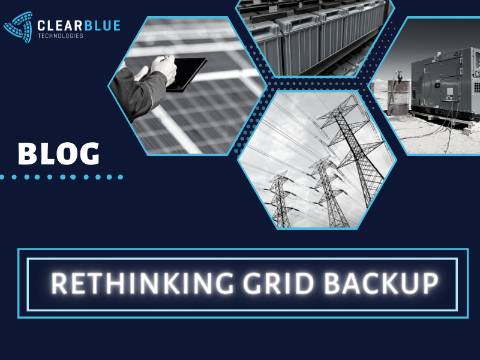
When The Grid Is Insufficient, Get The Most Affordable, Reliable Backup Power With Smart Off-Grid
The world’s power demands, especially in cities, are growing rapidly. As urban populations increase, and the IoT and Smart City industries expand, there will be an immense strain on the grid power network. On top of this, extreme weather events are making the grid increasingly vulnerable to blackouts. Considering these circumstances, it is important to start implementing innovative solutions to power mission-critical infrastructure when the grid is not enough.
Grid-Connect Backup: What Is It and Why Use It?
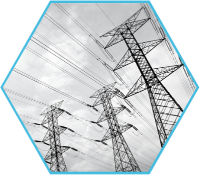 Firstly, let’s consider what we mean by Grid-Connect systems
and why we would need to use them. Well, Grid-Connect is backup power for the
grid, an alternative power source which comes on to provide power when the grid
has an outage. These alternatives can provide backup power to ensure
mission-critical systems still have reliable power when they need it.
Firstly, let’s consider what we mean by Grid-Connect systems
and why we would need to use them. Well, Grid-Connect is backup power for the
grid, an alternative power source which comes on to provide power when the grid
has an outage. These alternatives can provide backup power to ensure
mission-critical systems still have reliable power when they need it.
For several reasons, Grid-Connect is becoming increasingly essential. For example, when the power goes out in an extreme weather event, the recovery efforts are extremely challenging. With these events becoming more frequent, having grid backup power to keep mission-critical applications such as traffic lights, streetlights, and cell towers operational is crucial.
Traditional Grid-Connect
There are a couple of ways in which backup power is offered to the grid to ensure power availability during a grid outage.
1. Grid-Connect: Battery Backup
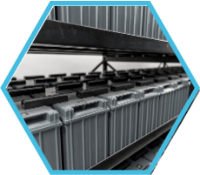 Firstly, battery backup is a common system used for grid
connect. Batteries will be charged by the grid when the grid is active and will
then provide power when the grid is down. However, battery backup systems can
only provide so much power. Once they are discharged, they cannot generate power
on their own. To ensure the reliability of these systems, many batteries are
needed, and the system quickly becomes very costly.
Firstly, battery backup is a common system used for grid
connect. Batteries will be charged by the grid when the grid is active and will
then provide power when the grid is down. However, battery backup systems can
only provide so much power. Once they are discharged, they cannot generate power
on their own. To ensure the reliability of these systems, many batteries are
needed, and the system quickly becomes very costly.
2. Grid-Connect: Generator Backup
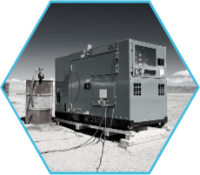
Similarly, diesel generators can provide short-term power to ensure critical applications are up and running until the grid is restored. However, diesel generators require ongoing on-site management and maintenance to ensure power availability. As well, continuing to replenish the fuel in the generator creates a high ongoing operating expense. So, diesel generators are helpful for a brief period, but are costly and impractical during long outages.
Below is a cost comparison between a Grid-Connect: Generator backup system for a telecom tower versus a Grid-Connect: Smart Off-Grid Backup system. Although the Smart Off-Grid system has a higher TCO on day one, Smart Off-Grid delivers a much better return on investment than the diesel generator solution due to its lower OPEX.
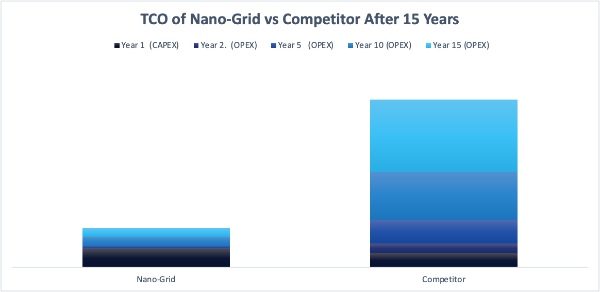

Thus, though generator or battery systems may be beneficial in the short-term, they cannot be relied upon to support a town or city’s infrastructure power needs in the event of a multi-day, long-term outage. Affordable and reliable long-term backup can only be achieved through Smart Off-Grid technology.
Grid-Connect: Smart Off-Grid Backup
Smart Off-Grid Power provides the most affordable and reliable power solution for long-term backup for the grid. In addition to battery backup, Smart Off-Grid power uses off-grid solar to ensure continuous power availability as long as the grid is down. With Smart Off-Grid power, mission-critical infrastructure can be affordably powered for days without the grid, something traditional backup power solutions cannot do. Smart Off-Grid power also has numerous intelligent remote management features which ensure the reliability of grid-connected backup power.
1. Energy forecasting

Smart Off-Grid technology has critical energy forecasting capabilities. What this does is it combines historical weather data with potential energy data to accurately forecast how much energy the system will generate and consume in the next few days. Energy forecasting provides invaluable data to help optimally manage the system.
2. Load Management
From the energy forecast, the loads can then be dynamically managed to ensure power availability. For example, if a period of low energy generation is forecasted, the power consumption can be remotely reduced in non-peak hours of the day to maintain power reliability. Load management allows you to efficiently manage the solar backup system without using significant, costly battery backup systems to ensure reliability.
3. Battery Management
Finally, Clear Blue’s smart battery management is a crucial aspect of ensuring reliable long-term Smart Off-Grid backup. With Smart Off-Grid technology, intelligent battery charging algorithms help optimize battery charging to extend the battery life. This way, you get more out of your power system with Smart Off-Grid and can deliver Grid-connect backup for extended periods at a low cost.
Ultimately, when the grid is down, it is essential to maintain uptime for mission-critical applications like cell towers and lighting systems. Conventional Grid-Connect, such as battery systems or diesel generators, are costly and unreliable, especially in the long term. The key to affordable backup power which can support multi-day outages is Smart Off-Grid Backup. Through energy forecasting, load and battery management, Smart Off-Grid technology achieves backup power, which is more affordable and reliable than conventional battery or generator backup power.

